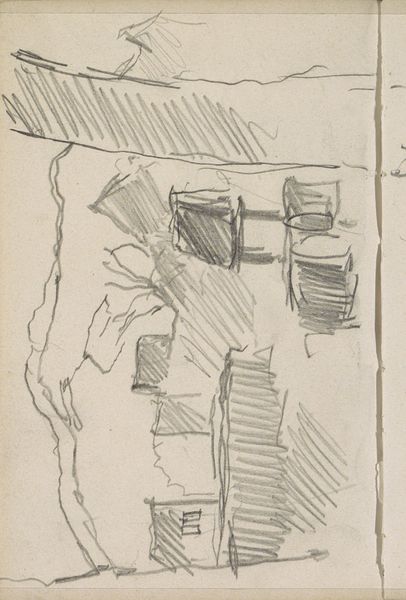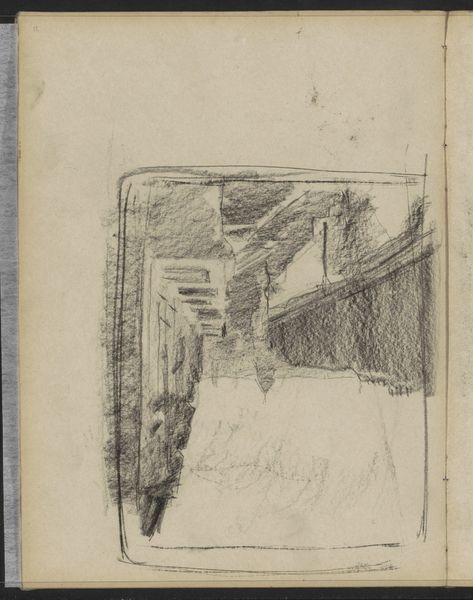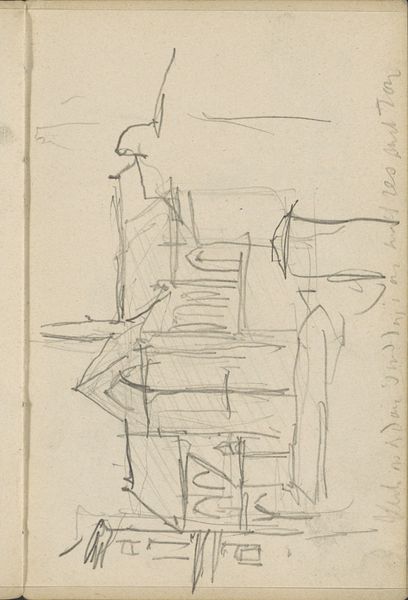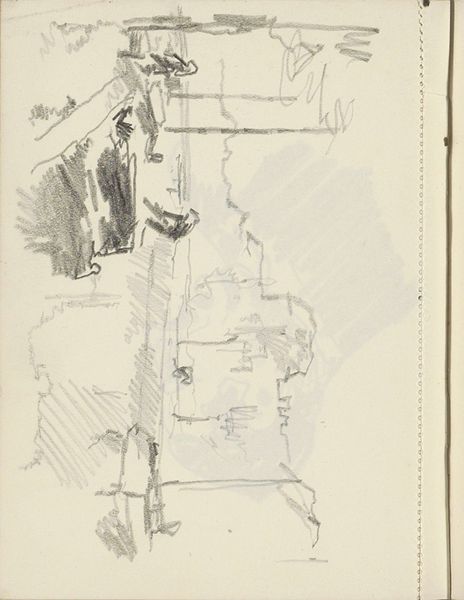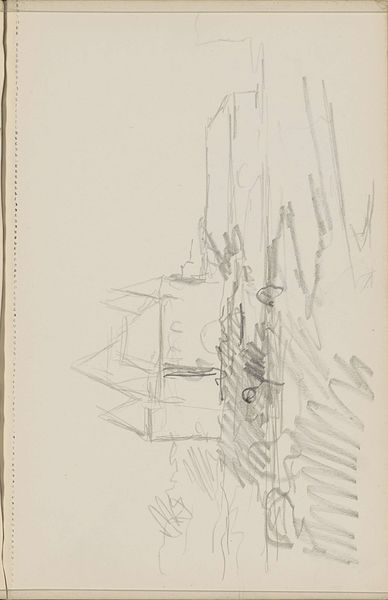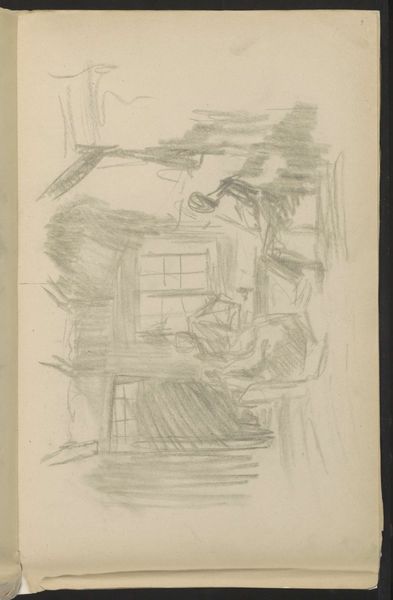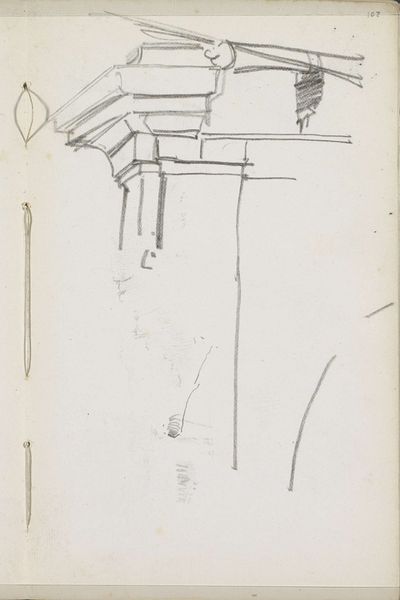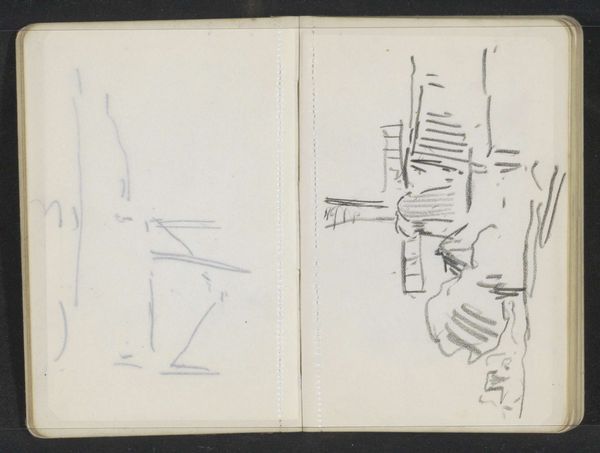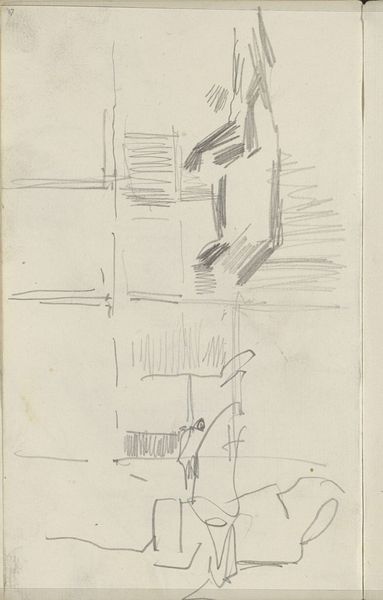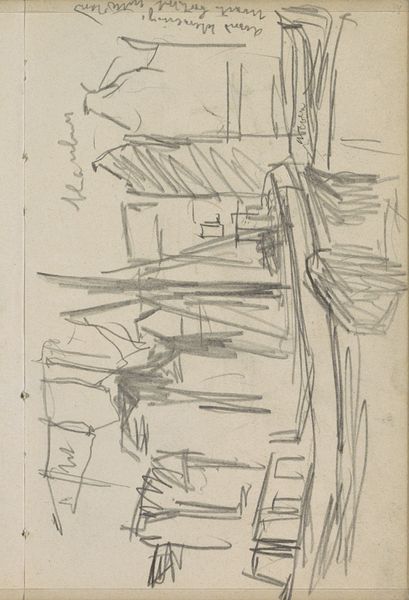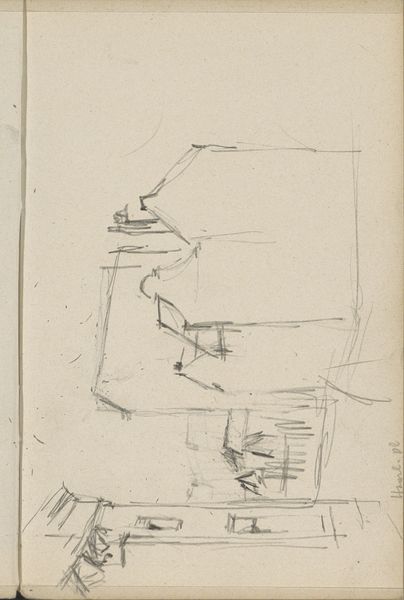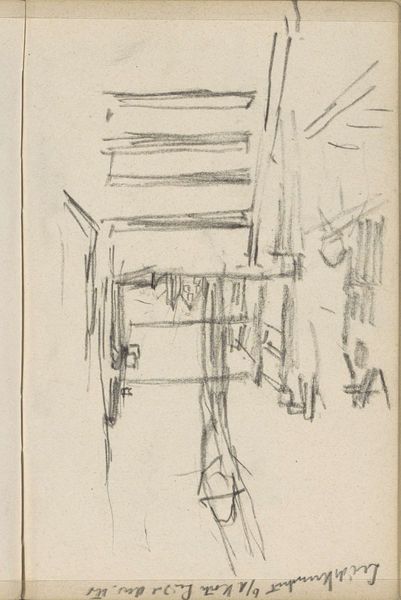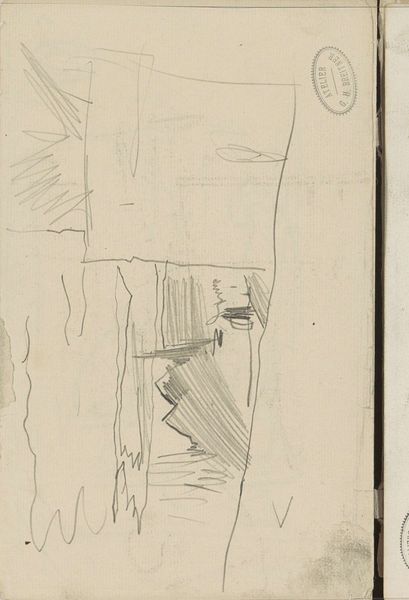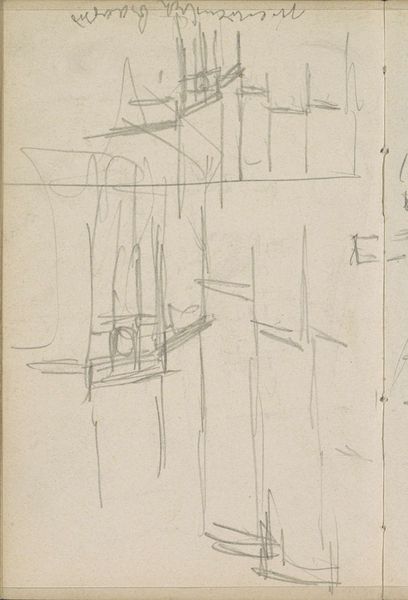
drawing, pencil
#
drawing
#
pen sketch
#
sketch book
#
incomplete sketchy
#
landscape
#
personal sketchbook
#
sketchwork
#
ink drawing experimentation
#
pen-ink sketch
#
pencil
#
sketchbook drawing
#
storyboard and sketchbook work
#
sketchbook art
#
realism
Copyright: Rijks Museum: Open Domain
Curator: Let's examine this intriguing drawing entitled "Dorpsstraat," dating approximately from 1874 to 1925 and currently residing here at the Rijksmuseum. It is attributed to Jan Veth. Editor: My first impression? Stark. The lines are economical, but there's a sense of impending coldness conveyed simply through the artist's choices in sketching technique. Curator: Precisely. Notice how Veth uses swift pencil strokes, creating a contrast with small square, which itself suggests the complete drawing. It offers us a meta perspective, encapsulating his vision of realism in an intimate landscape view. Editor: It is undeniably raw, more suggestive than definitive. One immediately imagines this was executed en plein air. One ponders the level of freedom Veth afforded himself given the role artists of his class would play. Curator: That interpretation resonates with Veth's commitment to social commentary and artistic freedom. It reflects broader trends challenging artistic conventions in his era. Think how societal upheaval affected the representation of landscape! Editor: Indeed! And, moreover, note how his choice of portraying this particular perspective engages directly with the public sphere as it changed! We gain insight, or perhaps imagine what role such insight should play! It brings forward critical questions related to artistic intention in its public reception within societal conventions. Curator: In conclusion, viewing “Dorpsstraat” reminds us of Veth's insightful capture of not just an environment but his commitment in redefining the landscape in light of shifting values. Editor: Agreed. It serves both as visual object of historical insight, urging further inquiry into the conditions in which imagery informs how one regards place.
Comments
No comments
Be the first to comment and join the conversation on the ultimate creative platform.
